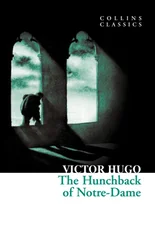Victor Hugo - The Man Who Laughs
Здесь есть возможность читать онлайн «Victor Hugo - The Man Who Laughs» — ознакомительный отрывок электронной книги совершенно бесплатно, а после прочтения отрывка купить полную версию. В некоторых случаях можно слушать аудио, скачать через торрент в формате fb2 и присутствует краткое содержание. Жанр: literature_19, foreign_antique, foreign_prose, на английском языке. Описание произведения, (предисловие) а так же отзывы посетителей доступны на портале библиотеки ЛибКат.
- Название:The Man Who Laughs
- Автор:
- Жанр:
- Год:неизвестен
- ISBN:нет данных
- Рейтинг книги:3 / 5. Голосов: 1
-
Избранное:Добавить в избранное
- Отзывы:
-
Ваша оценка:
- 60
- 1
- 2
- 3
- 4
- 5
The Man Who Laughs: краткое содержание, описание и аннотация
Предлагаем к чтению аннотацию, описание, краткое содержание или предисловие (зависит от того, что написал сам автор книги «The Man Who Laughs»). Если вы не нашли необходимую информацию о книге — напишите в комментариях, мы постараемся отыскать её.
The Man Who Laughs — читать онлайн ознакомительный отрывок
Ниже представлен текст книги, разбитый по страницам. Система сохранения места последней прочитанной страницы, позволяет с удобством читать онлайн бесплатно книгу «The Man Who Laughs», без необходимости каждый раз заново искать на чём Вы остановились. Поставьте закладку, и сможете в любой момент перейти на страницу, на которой закончили чтение.
Интервал:
Закладка:
The captain passed every minute from the binnacle to the standard compass, taking the bearings of objects on shore. The Matutina had at first a soldier's wind which was not unfavourable, though she could not lie within five points of her course. The captain took the helm as often as possible, trusting no one but himself to prevent her from dropping to leeward, the effect of the rudder being influenced by the steerage-way.
The difference between the true and apparent course being relative to the way on the vessel, the hooker seemed to lie closer to the wind than she did in reality. The breeze was not a-beam, nor was the hooker close-hauled; but one cannot ascertain the true course made, except when the wind is abaft. When you perceive long streaks of clouds meeting in a point on the horizon, you may be sure that the wind is in that quarter; but this evening the wind was variable; the needle fluctuated; the captain distrusted the erratic movements of the vessel. He steered carefully but resolutely, luffed her up, watched her coming to, prevented her from yawing, and from running into the wind's eye: noted the leeway, the little jerks of the helm: was observant of every roll and pitch of the vessel, of the difference in her speed, and of the variable gusts of wind. For fear of accidents, he was constantly on the lookout for squalls from off the land he was hugging, and above all he was cautious to keep her full; the direction of the breeze indicated by the compass being uncertain from the small size of the instrument. The captain's eyes, frequently lowered, remarked every change in the waves.
Once nevertheless he raised them towards the sky, and tried to make out the three stars of Orion's belt. These stars are called the three magi, and an old proverb of the ancient Spanish pilots declares that, "He who sees the three magi is not far from the Saviour."
This glance of the captain's tallied with an aside growled out, at the other end of the vessel, by the old man, "We don't even see the pointers, nor the star Antares, red as he is. Not one is distinct."
No care troubled the other fugitives.
Still, when the first hilarity they felt in their escape had passed away, they could not help remembering that they were at sea in the month of January, and that the wind was frozen. It was impossible to establish themselves in the cabin. It was much too narrow and too much encumbered by bales and baggage. The baggage belonged to the passengers, the bales to the crew, for the hooker was no pleasure boat, and was engaged in smuggling. The passengers were obliged to settle themselves on deck, a condition to which these wanderers easily resigned themselves. Open-air habits make it simple for vagabonds to arrange themselves for the night. The open air ( la belle étoile ) is their friend, and the cold helps them to sleep – sometimes to die.
This night, as we have seen, there was no belle étoile .
The Languedocian and the Genoese, while waiting for supper, rolled themselves up near the women, at the foot of the mast, in some tarpaulin which the sailors had thrown them.
The old man remained at the bow motionless, and apparently insensible to the cold.
The captain of the hooker, from the helm where he was standing, uttered a sort of guttural call somewhat like the cry of the American bird called the exclaimer; at his call the chief of the brand drew near, and the captain addressed him thus, —
"Etcheco Jaüna." These two words, which mean "tiller of the mountain," form with the old Cantabri a solemn preface to any subject which should command attention.
Then the captain pointed the old man out to the chief, and the dialogue continued in Spanish; it was not, indeed, a very correct dialect, being that of the mountains. Here are the questions and answers.
"Etcheco jaüna, que es este hombre?"
"Un hombre."
"Que lenguas habla?"
"Todas."
"Que cosas sabe?"
"Todas."
"Quai païs?"
"Ningun, y todos."
"Qual dios?"
"Dios."
"Como le llamas?"
"El tonto."
"Como dices que le llamas?"
"El sabio."
"En vuestre tropa que esta?"
"Esta lo que esta."
"El gefe?"
"No."
"Pues que esta?"
"La alma."[ 3 3 Tiller of the mountain, who is that man? – A man. What tongue does he speak? – All. What things does he know? – All. What is his country? – None and all. Who is his God? – God. What do you call him? – The madman. What do you say you call him? – The wise man. In your band, what is he? – He is what he is. The chief? – No. Then what is he? – The soul.
]
The chief and the captain parted, each reverting to his own meditation, and a little while afterwards the Matutina left the gulf.
Now came the great rolling of the open sea. The ocean in the spaces between the foam was slimy in appearance. The waves, seen through the twilight in indistinct outline, somewhat resembled plashes of gall. Here and there a wave floating flat showed cracks and stars, like a pane of glass broken by stones; in the centre of these stars, in a revolving orifice, trembled a phosphorescence, like that feline reflection, of vanished light which shines in the eyeballs of owls.
Proudly, like a bold swimmer, the Matutina crossed the dangerous Shambles shoal. This bank, a hidden obstruction at the entrance of Portland roads, is not a barrier; it is an amphitheatre – a circus of sand under the sea, its benches cut out by the circling of the waves – an arena, round and symmetrical, as high as a Jungfrau, only drowned – a coliseum of the ocean, seen by the diver in the vision-like transparency which engulfs him, – such is the Shambles shoal. There hydras fight, leviathans meet. There, says the legend, at the bottom of the gigantic shaft, are the wrecks of ships, seized and sunk by the huge spider Kraken, also called the fish-mountain. Such things lie in the fearful shadow of the sea.
These spectral realities, unknown to man, are manifested at the surface by a slight shiver.
In this nineteenth century, the Shambles bank is in ruins; the breakwater recently constructed has overthrown and mutilated, by the force of its surf, that high submarine architecture, just as the jetty, built at the Croisic in 1760, changed, by a quarter of an hour, the course of the tides. And yet the tide is eternal. But eternity obeys man more than man imagines.
CHAPTER IV.
A CLOUD DIFFERENT FROM THE OTHERS ENTERS ON THE SCENE
The old man whom the chief of the band had named first the Madman, then the Sage, now never left the forecastle. Since they crossed the Shambles shoal, his attention had been divided between the heavens and the waters. He looked down, he looked upwards, and above all watched the north-east.
The skipper gave the helm to a sailor, stepped over the after hatchway, crossed the gangway, and went on to the forecastle. He approached the old man, but not in front. He stood a little behind, with elbows resting on his hips, with outstretched hands, the head on one side, with open eyes and arched eyebrows, and a smile in the corners of his mouth – an attitude of curiosity hesitating between mockery and respect.
The old man, either that it was his habit to talk to himself, or that hearing some one behind incited him to speech, began to soliloquize while he looked into space.
"The meridian, from which the right ascension is calculated, is marked in this century by four stars – the Polar, Cassiopeia's Chair, Andromeda's Head, and the star Algenib, which is in Pegasus. But there is not one visible."
These words followed each other mechanically, confused, and scarcely articulated, as if he did not care to pronounce them. They floated out of his mouth and dispersed. Soliloquy is the smoke exhaled by the inmost fires of the soul.
Читать дальшеИнтервал:
Закладка:
Похожие книги на «The Man Who Laughs»
Представляем Вашему вниманию похожие книги на «The Man Who Laughs» списком для выбора. Мы отобрали схожую по названию и смыслу литературу в надежде предоставить читателям больше вариантов отыскать новые, интересные, ещё непрочитанные произведения.
Обсуждение, отзывы о книге «The Man Who Laughs» и просто собственные мнения читателей. Оставьте ваши комментарии, напишите, что Вы думаете о произведении, его смысле или главных героях. Укажите что конкретно понравилось, а что нет, и почему Вы так считаете.












